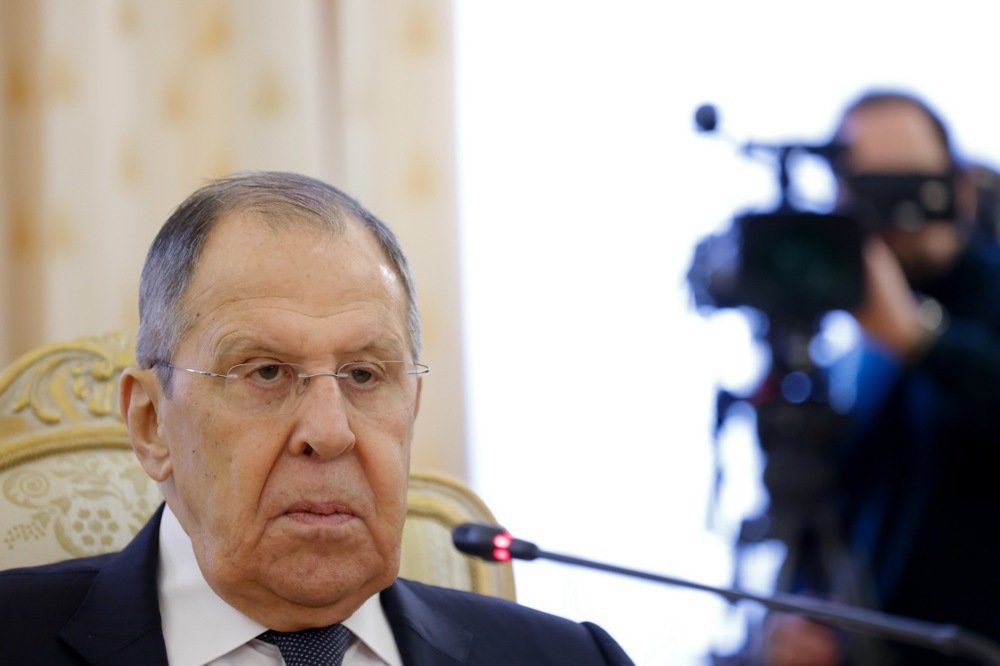
Sergey Lavrov attends a meeting with OSCE Secretary General Feridun Sinirlioglu in Moscow, 11 March 2025. Photo: EPA-EFE/MAXIM SHEMETOV/POOL
Monday’s talks between Moscow and Washington in Saudi Arabia focused mainly on “safe navigation in the Black Sea” and the possible resumption of a grain deal that collapsed in 2023, Russian Foreign Minister Sergey Lavrov told Russia’s state-run Channel One on Tuesday.
Noting that the “preliminary results” of the talks had been reported to both Vladimir Putin and US President Donald Trump, Lavrov said that while Russia was in favour of resuming the Black Sea Grain Initiative, it needed “clear guarantees” which could only come from Washington “ordering” Ukrainian President Volodymyr Zelensky to accept it.
Meanwhile, Vladimir Chizhov, a Russian senator and deputy chief of the Federation Council’s Security and Defence Committee, told state-affiliated news agency Interfax on Tuesday that Moscow and Washington had drafted a joint statement during their talks on Monday which Ukrainian negotiators rejected on Tuesday, though he did not disclose the statement’s content.
Kremlin spokesperson Dmitry Peskov also declined to publicly comment on the Riyadh talks earlier on Tuesday, which he said were of a “technical” nature.
Ukrainian negotiators, who spent just over an hour meeting with their US counterparts in Riyadh on Tuesday, have not addressed Russia’s claims, or disclosed any details about the meeting, apart from Ukrainian Defence Minister Rustem Umerov, who said that Kyiv and Washington had discussed “key issues … in the energy sphere” during a “constructive and meaningful” conversation.
The Black Sea Grain Initiative was a deal brokered by Turkey and the UN in July 2022 that allowed Ukraine to safely export grain through the Black Sea. However, less than a year after the agreement was reached, Russia withdrew from the deal, citing violations of its terms and claiming that Russia had been “deceived” by the West, which was continuing to restrict Russian grain exports.
Despite the collapse of the deal, Ukraine has nevertheless been able to transport its grain exports using an alternative sea route from its southern port of Odesa and travelling along the coast of Bulgaria and Romania to avoid harassment from Russian Naval vessels in the Black Sea.
